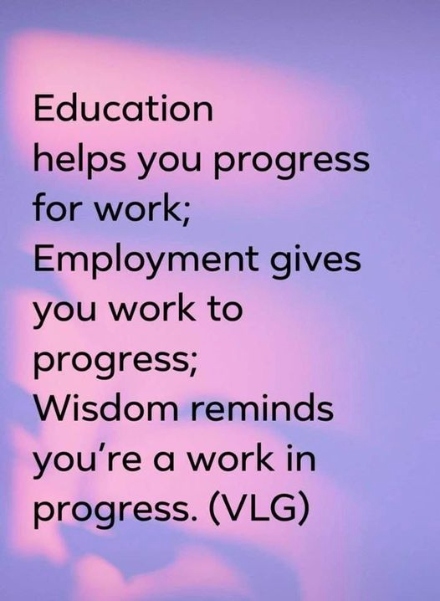Introduction
Simplicity is understood as an inward reality that results in an outward lifestyle (Richard Foster). It is a virtue that is grounded upon a profound understanding that every provision is God’s gift which is not ours to keep but to be freely shared with those in need.

To live a life of simplicity is an urgent call for all people who have faith in the Creator of life. Simplicity is based upon a fundamental truth that “this world is not my home; I’m just a passing through.” (Jim Reeves). We, humans, are simply on a journey towards eternal existence.
Some outward expressions of simplicity include the following: buying things for their usefulness; rejecting addictive behavior; developing a habit of giving away things; refusing the propaganda of modern gadgetry; learning to enjoy things without owning them; developing a deeper appreciation for creation; observing instructions about plain, honest speech; and rejecting anything that breeds the oppression of others. (Richard Foster, Celebration of Discipline).
A major challenge to simplicity is materialism – a philosophical world view that does not recognize divine sovereignty in all human affairs. It is a see-touch outlook which promises prompt happiness through material things.
There are basic components of materialism that collectively threaten the development of simplicity. They are the following:
a. Acquisition over generosity
“Give me this; I want that!” is the mantra of an acquisition-oriented materialistic individual. The oft-quoted saying attributed to Robert Quillen (1887-1948) that defines Americanism is descriptive of the manic quest for acquisition. It says, “Using money you haven’t earned to buy things you don’t need to impress people you don’t like.”
To illustrate, let me offer two examples: First is a case of a childless couple who buys a five-bedroom house. Secondly, a socialite who proudly announces to her peers that she has more than four hundred pairs of shoes. Now, that’s more than one pair every day of the year!
The advent of the credit card industry, along with the “buy now, pay later” scheme, has played excellently to the psychology of materialism.
How? It fosters a sense of false security from quick ownership of things. And those who struggle with lack of provision in the past could unknowingly compensate by acquiring.
Contrast this with the call of simplicity for one to live a life with generosity.
When we recognize that all our provisions are a gift, we will become more effective stewards of what we have been provided.
This stewardship includes not just being cognitively concerned with the plight of the poor but becoming active participants in meeting human needs without the hope of receiving any return.
b. Position over relational harmony
Materialism promotes a frantic pursuit of ranks and positions, especially within an organizational structure that looks like a pyramid. The higher one climbs up the corporate ladder, the more power he wields over a larger number of those below.
Usually, these ranks and positions are also accompanied by something quite tangible – bigger office, larger income, and more fringe benefits. Not a few would rest their sense of security in these positions.
People would fight and ingratiate with the powers that be to get the next promotion. Quite often, what is sacrificed in the process is the value of relationships.
The pursuit for promotion is done, regardless of whoever gets hurt, for as long as the letter from the head honcho that seals the aspired position is received.
On the other hand, part of the call to live a life of simplicity is to establish and nurture relational harmony. The sense of togetherness is a hallmark of those whose major aspiration is colored by the virtue of simplicity.
The slogan often captured is “all for one; one for all.” There is a collective mentality that pervades in simplicity. Harmony in relationships is far more important than getting promoted at all costs.
c. Reputation over character
Materialism thrives on how one advertises self for more gain. So, the advertisement industry receives an enormous amount of funding from all sectors: business establishments, educational institutions; government agencies; and even religious communities.

This is where the promotion of reputation comes in. The building up of reputation is a primary concern of many within a materialistic framework.
Major institutions create departments that promote solely the reputation of the group being represented. Individuals and private agencies skilled in advertising are hired to portray the impeccable reputation of the organization.
The basic problem with focusing on reputation is its emphasis on appearance. While not diminishing the value of propriety in appearance, there is a far more important item than a good reputation.
That is a reliable character. Character matters most. Reputation is how others perceive you; character is who you truly are.
Simplicity promotes the development of inner virtue – that is, integrity in character. Without a character to back it up, reputation is hollow.
To every reader of this blog, I have a suggestion: Take good care of your character, and your reputation will follow!
d. Religion over spirituality
This writer is quite aware that religion has been understood to refer to a system of beliefs that adherents faithfully observe. When the system becomes codified and exclusivist it becomes prone to legalism and abuse.
Thus, I use the term religion to refer to an organized institution that could be identified with its rites, garb, and structure.
Rites are well written rules on how to observe an event with religious significance. There is a rite to introduced a child to society shortly after birth; to introduce a young person upon entrance to adulthood; to seal the marriage of a couple; to bury the dead; or simply to celebrate a holiday.

A garb is what religious people wear to identify themselves apart from ordinary members of the community. Some of these garbs are more elaborate than others.
A structure could refer to the shape of an edifice for worship, the hierarchy of leadership; the nature and order of worship; and the requirement for affiliation.
Again, religion becomes a tool of materialism due to its emphasis on appearance; how the public perceives the group.
On the other hand, simplicity calls for the deepening of spirituality.
While the primary goal of religion is to promote spirituality the two very often do not align.
- While religion is concerned with godly talk, spirituality promotes how to live godly lives.
- While religion is exclusive of those who are affiliated with the group, spirituality promotes inclusiveness.
- While religion focuses on rules and regulation alongside violators’ punishment, spirituality promotes relationships with grace and unconditional acceptance of others.
In other words, spirituality adheres to the growth of inner virtue which is consistent with the call of living in simplicity.
d. Fleeting satisfaction over lasting joy
Recall that I defined materialism as a see-touch worldview unmindful of moral regulation.
By its very nature, it bombards the individual with the promise of immediate happiness based on what could be seen and touched at this very moment. Waiting is not considered a virtue.
Have you heard of advertisements which tells you “how to make millions in two weeks;” “how to have thousands of followers in one click;” or “how to lose 50 pounds in two weeks;” or “how to reverse diabetes in three days?”
And how about the popular TV programs that ask one person to select someone from among 25 interested participants to marry within the season’s duration, usually lasting two months?
There is also an alarming trend in America now! This is the spiking of cases of diseases of excesses.
Addiction; obesity; hypercholesterolemia; high blood pressure; and diabetes are a few examples of these diseases.
Too much is ingested into the body that the major internal systems simply give up. All these are part of the need to derive instant satisfaction.
Simplicity, on the other hand, calls for the development of inner virtue that eventually results in lasting outcomes and, therefore, lasting joy. The process calls for waiting, discipline, and sacrifice.
Anything that is precious in life calls for waiting. Examples are: a decision to get married; the birth of a child; an accomplishment of academic degree; establishment of a well-balanced lifestyle; and growth towards maturity.
In the process of waiting, the call for discipline is paramount.
Think of losing weight for example which is part of a well-balanced lifestyle. This goal calls for regular exercise which entails discipline. And along with being disciplined is the willingness to make sacrifices.
Waking up early for exercise can be a sacrifice for some because that would be giving up watching late-night TV shows and avoiding starchy snacks that go along with it.
However, as one accomplishes the goal in the long run, the joy will become more lasting even as he or she encourages others to do the same, thus making a difference through a life of example.
Concluding Thought

One interesting read I have is the Biblical record of Christ declaring His protest against the materialism of His day. I reckon this is equally significant even today.
He declared, “No one can serve two masters. Either you will hate the one and love the other, or you will be devoted to the one and despise the other. You cannot serve both God and mammon.” (Luke 6:13, The Holy Bible).
Take note that the last word can be translated as “money” or “wealth.”
Have you noticed that material wealth is presented as a rival god? In other words, attachment to material things should not be taken casually.
You and I make only one choice: God or wealth; service to Him or attachment to things; materialistic lifestyle or the life of simplicity! It is not both/and but either/or!
To me, the greatest threat to a life of simplicity is the lure of materialism.
Our society has been soaked with a materialistic world-view that it is rather difficult to do away with.
It will take a solid shift of the mind and strong resolve of the heart to say farewell to the attachment to things.
However, by the grace of God, it can be done! Let us not make a life out of the provision; let provision help us to live a life of simplicity.
PHOTO CREDIT: The images used in this post is owned by Dr. Val Gonzales.
So true and beautiful!
Dr. Val,
My heart is filled with joy to have read this as we all are going through this season of life.
As Christians , we sometimes tend to cling to the possessions, the knowledge and views that the world offers.
This indeed is a great reminder to stay focused in our calling and do as the LORD’s will!
Thank you very much
I am glad to know that this is of help to you.
You may share the link to friends and family who you think could benefit from this.
Dr Val Gonzales